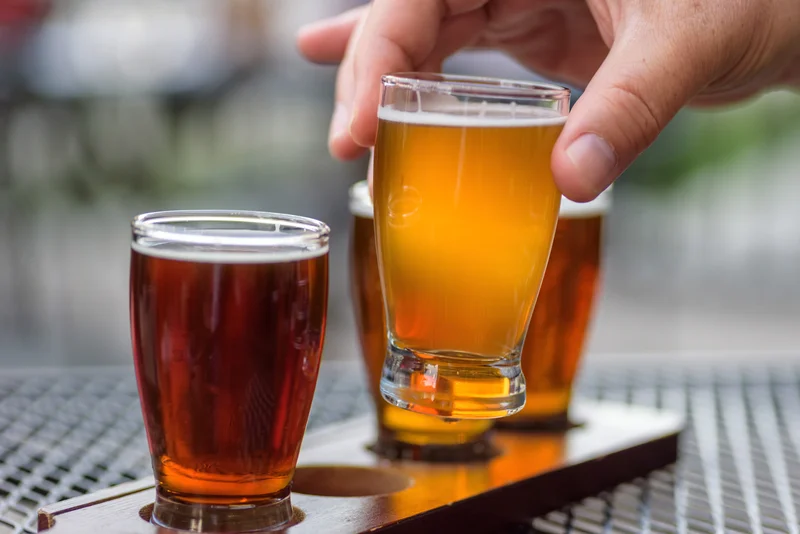How Does Alcohol Affect Your Kidney Health?

This could also be a significant factor contributing to ethanol-induced mitochondrial dysfunction in the kidneys (Harris et al. 2015). Fluid restriction is a crucial aspect of managing kidney function in dialysis patients, aimed at preventing fluid overload and maintaining proper cardiovascular health. However, alcohol consumption can complicate this delicate balance. Healthcare professionals often advise dialysis patients to limit alcohol intake to no more than one standard drink per day for women and up to two standard drinks per day for men. Regular alcohol consumption can have wide ranging health effects beyond its impact on kidney function.
Three Times Kidney Transplant Recipient: “Third time’s the charm.”
This IgA-related kidney disease leads to clinical symptoms of renal injury and eventually progresses into renal failure (Amore et al. 1994; Bene et al. 1988; Pouria and Feehally 1999). Experimental studies suggest that heavy alcohol consumption induces IgA kidney disease (Smith et al. 1990). In addition, rats given intragastric infusions of a commercial whiskey (1.5 ml/100 gm body weight) 3 times a week along with a nutrient-deficient diet develop a more severe form of IgA nephropathy (Amore et al. 1994). In contrast, some studies find that heavy alcohol consumption may predict poorer outcome in patients with chronic kidney diseases (Kronborg et al. 2008; Shankar et al. 2006; White et al. 2009). For example, White and colleagues (2009) reported that heavier drinkers (those consuming more than 30 g of alcohol/week) were at higher risk of incident albuminuria, which is typically a symptom of kidney disease. Japanese (Yamagata et al. 2007) and Italian (Buja et al. 2011) cohort studies revealed a U-shaped association between alcohol consumption and incidence of proteinuria.

Your kidney health is unique. Your path should be too.
- Our team of experienced, compassionate urologists are here to assist you.
- Although the mechanisms responsible for these effects have not been established, an experimental study by Chan and Sutter (1983) offers some insight.
- Increased alcohol consumption can also lead to alcoholism and addiction.
- Many studies have confirmed that unhealthy diet and lifestyle can cause various diseases, and heavy alcohol consumption is one of the important factors 66.
- The harmful effects of alcohol over-consumption on kidney health are real; overindulging may cause significant damage, including increasing the risk of developing chronic kidney disease (CKD).
Seeking professional medical care sooner than later can help you get an accurate diagnosis of what is causing your kidney pain. They will assist you in introducing an individualized treatment plan that will relieve your symptoms and preserve the health of your kidneys. Age, primary diseases, initial eGFR, and individual differences what are the first signs of kidney damage from alcohol? can also affect the prognosis of patients with CKD and interfere with the effects of alcohol on the kidneys 7,10,67,94. Since aging, metabolic diseases, and hypertension impair kidney function, they can also influence the effect of ethanol on the kidneys. Thus, the risk of kidney damage from alcohol increases with age, metabolic diseases, hypertension, and initial eGFR.

Alcohol’s Impact on Kidney Function
- This meta-analysis found a significant difference when comparing episodic heavy drinkers with moderate regular drinkers; the former increases the risk of ischemic heart diseases 115.
- Keep close tabs on how alcohol impacts your electrolyte balance as well.
- Jen Hernandez is a registered dietitian and board-certified specialist in renal nutrition.
- Understanding the link between alcohol use and its risk to the kidneys is essential for making informed health decisions.
- What you drink makes a big difference in how well your kidneys function.
In recent years, CKD has become one of the most serious global public health problems. Recent studies estimated that CKD affects about 119.5 million people worldwide 10,11. Regular, heavy alcohol use can also be harmful to your kidneys over time. According to the National Kidney Foundation, regular heavy drinking can double the risk of chronic kidney disease. The risk is even higher in people who drink heavily and also smoke.

Can Kidney Patients eat fruit and vegetables
For example, a person with a UTI that spreads to the kidneys can develop sepsis, a dangerous infection of the blood. Whether you are struggling with addiction, mental health or both, our expert team is here to https://ecosoberhouse.com/ guide you every step of the way. Don’t wait— reach out today to take the first step toward taking control of your life. The slope of decline in the eGFR estimated over 12 years was less steep in the higher alcohol intake groups (Fig. 3).
Open communication with the healthcare team is crucial to ensure that any alcohol consumption aligns with the patient’s fluid restrictions, medical condition, and overall treatment plan. Alcohol has a diuretic effect, meaning it increases urine production and fluid loss. For dialysis patients who already have impaired fluid regulation, this can lead to dehydration between dialysis sessions.
However, individual tolerance and health conditions may vary, so consulting a healthcare provider is crucial before making any decisions about alcohol consumption. Dialysis patients often take medications to manage blood pressure, regulate electrolyte imbalances, and control complications arising from kidney dysfunction. Alcohol’s impact on blood pressure levels can interact with antihypertensive medications, causing hypotension or rendering the medication less effective. Given the intricate interaction between alcohol, kidneys, liver, and medications in dialysis patients, it is essential to approach alcohol consumption with caution and under the guidance of healthcare professionals.
Therefore, the effect of ethanol on the kidney is beyond our original understanding. Alcohol can not only directly damage the kidney, but also causes renal dysfunction by damaging other organs. In addition, some studies proved that alcohol consumption aggravates kidney injury in diabetic nephropathy rats 64. Hepatorenal syndrome, which is secondary to alcoholic hepatitis 65, and acute kidney injury, secondary to rhabdomyolysis, also cannot be ignored 46. Remember that Drug rehabilitation it’s crucial to strike a balance when indulging in your favorite spirits if you’re dealing with renal issues. While alcohol restrictions for kidney disease patients aren’t always extensive, moderation is key.

Responses